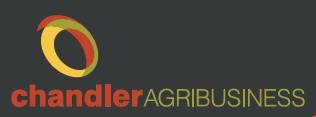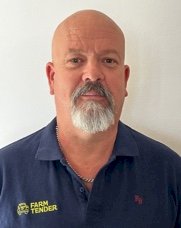We just have to let Farmers Farm
- By: "Farm Tender" News
- US & World News
- Sep 19, 2019
- 555 views
- Share

This article is bought to you by Chandler Agribusiness and Mobble.
Book tackles fear of pesticides, GMOs and new technologies with facts and common sense
"My hackles rise when I hear people say farmers want to ‘douse' their crops with chemicals or ‘slaughter' their land with fertilizer." – Robert Saik. Photo: Supplied

Author Robert Saik concludes his just-released book Food 5.0 with the following observation — "I have immense faith in our farmers to feed the future… we just have to let them."
The book is aimed at the 99.8 per cent of the population who Saik figures have no on-the-ground knowledge of modern agriculture and explains how farmers can provide the rapidly growing global population with a safe, reliable, affordable, environmentally sustainable food supply. It should also be of interest to people in agriculture because of his well-presented explanation of where farming has come from and is headed.
He outlines his background as an Alberta farm boy and his ongoing role in agriculture to the point where, among other things, he is CEO of DOT Farm Solutions of Regina, which is the marketing arm for an autonomous robotic farming platform, and founder of AGvisorPRO, a knowledge platform providing instantaneous connectivity between farmers and agricultural experts. He knows what he's talking about and explains it well.
The book describes the five stages of agriculture starting with human and animal power and concluding with 5.0, the era we're just entering that will bring drones, robots and other technologies to the fore, enabling farmers to be more productive and their farms more sustainable.
He explains in considerable detail the role of science in agriculture with the advancement in pesticides and GMOs, which he calls the Generally Misunderstood Organism, and now advanced technology.
Ad - For all your Farm Worker requirements, contact Chandler Agribusiness - Ad
Ad - For all your Farm and Livestock recording try Mobble - Ad
Along the way he rants about the anti-agriculture claims that annoy him the most.
"My hackles rise when I hear people say farmers want to ‘douse' their crops with chemicals or ‘slaughter' their land with fertilizer. Their comments make no sense because chemicals and fertilizer are expensive. Farmers have to operate on razor-thin margins, and consequently the judicious application of nutrients is important," he writes.
With the global population expected to reach nine billion or more by 2020, the challenge "is to figure out how to feed them. It's going to take all the tools in our tool box to feed this population. And we need to ensure that we do so in a sustainable fashion," he says. "In fact, so long as we have people on the planet, we must ensure that agriculture is infinitely sustainable."
Saik says agriculture is already a leading user of new technology from self-driving tractors to sensor technology to artificial intelligence to bioengineering. In other words, agriculture has come a long way from a horse-drawn plow or a small red open-seat tractor.
"Agriculture today is an extremely sophisticated business of high risk yet still close to 97 or 98 per cent of farms of consequence are family farms. Don't add a girl with pigtails and a freckle-faced boy to your bib-wearing farmer fantasy. It's a family business, an incorporated business of consequence that needs to operate in a sustainable manner." Or as he adds, "it's not your grandpa's farm anymore."
Too many people are "quick to criticize big ag, factory farms, and science such as GMOs, without understanding the history, science, and economics behind those modern, technological-advanced farming practices."
If you're an outsider with the least bit of curiosity about where your food comes from, this book provides a lot of information about how agriculture has changed over the years and the many steps being taken to make it sustainable. It also responds to a lot of the unfounded social media attacks on agriculture and puts some badly needed context to issues we hear about regularly.
Or as he concludes, "We're entering the most critical phase of agriculture on the planet today, and we should be talking about the possibilities for farming and food."
Ad - For all your Farm Worker requirements, contact Chandler Agribusiness - Ad
Ad - For all your Farm and Livestock recording try Mobble - Ad













Share Ag News Via